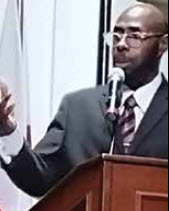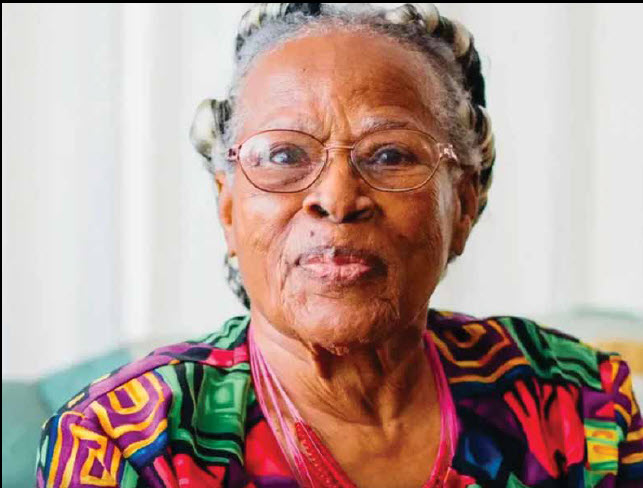 By: Eric Betts
By: Eric Betts
Opal Lee has become a beacon of hope and resilience, demonstrating the profound power of patient perseverance and an unwavering commitment to achieving her dreams. Born in 1926, Opal Lee has lived through some of the most tumultuous periods in American history. Her steadfast resolve was evident as early as 1939 when her family home in Fort Worth, Texas, was burned down by a mob of 500 racist terrorists. Despite such a harrowing experience, Opal Lee chose not to be consumed by bitterness. Instead, she committed herself to championing the causes of freedom and equality, becoming a tireless advocate for the recognition of Juneteenth as a national holiday.
Beyond her activism, Opal Lee has utilized her deep faith as a cornerstone in her quest for societal change. She believes that faith provides strength and guidance, helping her navigate through the struggles and injustices she has faced. Opal’s faith-driven approach has inspired countless others to believe in the power of forgiveness and the importance of fighting the good fight of faith for love, with compassion and determination. Her life’s work, including her efforts to build a food bank and community gardens, exemplifies how she uses faith not only as a personal tool for resilience but as a means to uplift and transform her community.
In 2016, at the age of 89, Opal Lee made national headlines when she embarked on an ambitious 1,400-mile journey from Fort Worth, Texas, to Washington, D.C. Her campaign aimed to convince lawmakers of the importance of Juneteenth — a day that commemorates the emancipation of enslaved African Americans. This monumental walk was not just a physical journey but also a testament to her big-picture outlook on life. Despite her age and the physical strain of such an endeavor, Opal Lee’s faith in people and her belief in the moral arc of the universe kept her going.
Even now, at 97, Opal Lee remains a dynamic force, marching on in her mission to address issues like unemployment, homelessness, and poverty. Her efforts are deeply inspired by her unwavering faith in God and her conviction that change is possible. Opal Lee continues to harness the power of community and activism to bring about meaningful change. Seven years after her historic walk, her tirelessness and tenacity remain undiminished, reinforcing the notion that true leadership is about consistency in the face of adversity and the enduring belief in a better future for all.
According to the Daily Herald, a Texas newspaper, in a heartwarming demonstration of how good deeds are ultimately rewarded, Opal Lee was given the keys to her new home in Fort Worth, Texas. This house is not just any home; it stands on the very tree-lined corner lot from which her family was violently driven by a racist mob when she was just 12 years old. “I’m so happy I don’t know what to do,” Lee exclaimed, sitting in a rocking chair on the porch minutes before the ceremony.
The timing of this commendable gift, just days before the nation celebrated Juneteenth, highlights its profound significance. Several community groups collaborated to build and furnish the house in under three months, a testament to collective goodwill. Lee plans to hold an open house to meet her new neighbors and share her joy, declaring, “Everybody will know that this is going to be a happy place.” Her faith and consistent drive helped facilitate this and other acts of goodwill around the country.
That mob, outraged by a Black family moving into their neighborhood, destroyed her family’s home, but didn’t have the final word. She believes that Providence has allowed her to see such a day. Newspapers at the time reported that about 500 people participated in the attack, smashing windows and dragging furniture into the streets. Due to the horror of that day, Lee’s family never returned, choosing instead to
work and buy another home. According to the Daily Herald, Lee seldom dwelled on the traumatic incident until recent years when she began considering reclaiming the lot.
After discovering that Trinity Habitat for Humanity owned the land, Lee reached out to CEO Gage Yager, a longtime friend, to purchase the lot, which was sold to her for a symbolic $10. HistoryMaker Homes built the house free of charge, with Texas Capital funding the furnishings and JCPenney donating appliances. During the ceremony, Myra Savage, board president of Trinity Habitat for Humanity, lauded Lee’s contributions, stating, “Thank you for being a living example of what your home represents today, which is community, restoration, hope, and light.”
As Lee anticipated her move, she expressed her eagerness with characteristic humility, planning to bring only her toothbrush. This poignant homecoming serves as a reminder of her belief that communities can work together to create the best city, state, and country possible. Lee’s relentless dedication has ultimately transformed her lifelong dream of love, hospitality and unity into reality. Indeed she stands as a colossal model of what inspiring leadership is all about.
By: Eric Betts, Assistant Professor | Course Developer, Hampton University School of Religion






